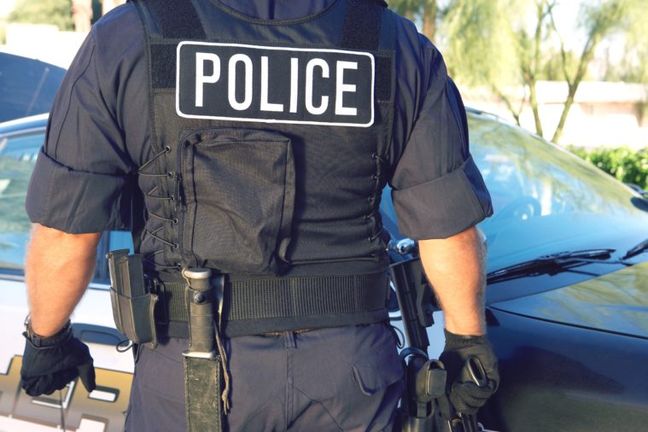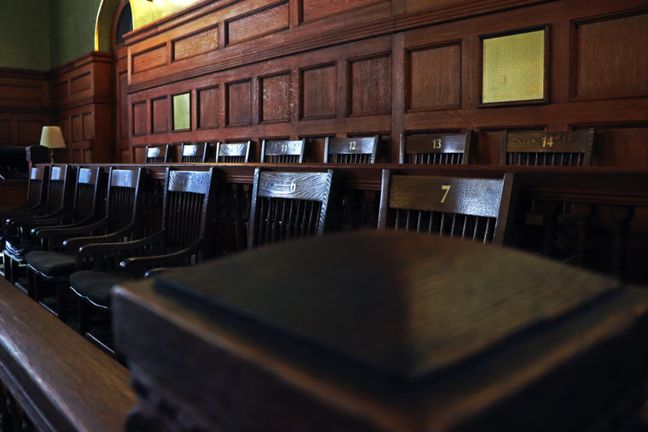James Droge, et al. v. AAAA Two Star Towing, Inc., 136 Nev. Adv. Op. 33 (Nev. App., June 18, 2020).
One of the favorite subjects found on reality TV is the repossession of cars, boats, and airplanes from individuals who defaulted on their loans to the bank. Watching a desperate and screaming debtor throw himself onto the hood of a car as it is being loaded onto a tow truck makes for great television. Often, in these shows, the employee of the repossession company or “repo company” is heard explaining to the delinquent debtor his company has the right under self-help laws and the loan contract to take control of the vehicle, and there is nothing the debtor can do.
As with most reality TV, the repo company’s claim that there is nothing the debtor can do at that moment to stop the repossession is not accurate, at least in jurisdictions like Nevada. Recently, the Nevada Court of Appeals tackled the issue of when a repo company must stop its efforts to repossess a vehicle once the debtor attempts to stop it, or lose the protections afforded by Nevada’s self-help repossession statute. The short answer is: the repo company must stop if its efforts will lead to a “breach of the peace.” Unfortunately, neither the legislature nor the Nevada Court of Appeals chose to provide a definition of “breach of the peace” for this context.
NRS 104.9609 provides that, after a default on a secured loan, a secure party may take possession of the collateral “without judicial process, if it proceeds without breach of the peace.” In the case James Droge, et al. v. AAAA Two Star Towing, Inc., the Nevada Court of Appeals recognized the term “breach of the peace” has not been defined “for purposes of self-help repossession statutes.” The Court further pointed out that courts in multiple jurisdictions “struggle to define the term.” However, after pointing out “that breach of the peace is a relatively elastic legal concept,” the Court “decline[d] to adopt an express definition for the term.”
Instead, the Court decided to outline “workable guidelines to assist courts in determining when a breach of the peace occurs.” To this end, the Court provided examples from other cases in which repo companies breached the peace. For example, a breach of the peace occurs “where actual violence or physical resistance is present during a repossession.” It also occurs when the repo company “crosses physical barriers or destroys personal property in furtherance of a repossession,” such as entering a closed garage or breaking a lock. Conversely, a breach of the peace does not occur when a repo company takes possession of a vehicle that is on an open driveway or in an open area of either the debtor’s property or a third party’s property.
The Court struck the biggest blow to repo companies’ ability to repossess vehicles by concluding: “a mere objection may be sufficient to require a secured party to terminate its repossession efforts so as not to breach the peace.” This objection can be given by the debtor, a family member of the debtor, or a third-party to whom the debtor entrusted the vehicle. The Court rejected the reasoning found in some other jurisdictions that self-help repossession laws would be “useless if an oral protest alone were sufficient to constitute a breach of the peace.” See Chrysler Credit Corp. v. Koontz, 661 N.E. 2d 1171, 1174 (Ill. App. Ct. 1996). The Court reasoned that when oral objections go unheeded, they often lead to violence, which should be avoided.
Despite the conclusion that an oral objection is sufficient to require a repo company to stop its attempt, the Court also concluded the objection must be made contemporaneously, while the repo company is in the act of repossession. In other words, a debtor cannot write a letter to the secured party and declare he/she objects to any self-help attempts to repossess the collateral. The debtor must catch the repo company in the act of attempting to take possession of the collateral, then orally object at that time.
The Droge opinion also provides further but vague guidance by concluding that self-help repossession must “be conducted at a reasonable time and in a reasonable manner” and “a breach of the peace occurs when a secured party fails to satisfy either or both of these obligations.” What constitutes a reasonable time or reasonable manner should be determined on a case by case basis, keeping in mind the general guidelines outlined by the Court.
For repo companies in Nevada, the Droge opinion has just made their jobs much more difficult. Essentially, a repo company must sneak onto a debtor’s property or wherever the vehicle is located and take possession of the vehicle without the debtor noticing; because once the debtor sees what is going on and verbally objects, the repossession must stop. Otherwise, the repo company, along with the secured party who hired it, may become liable to the debtor for a breach of the peace, trespassing, and other potential torts.
Significantly absent from the Droge opinion is any guidance on how far along in the repossession process is too far before a repo company can ignore a verbal objection. For example, if a repo company already has a vehicle loaded onto a tow truck and is about to drive away with it, does the tow truck operator have to put down the seized vehicle if the debtor objects? How about if the vehicle is only halfway onto the tow truck? What if the tow truck is now driving away but still on the debtor’s street?
At present, these practical questions remain unanswered but are sure to arise in later cases. For now, repossession companies and secured parties must determine what it means to keep the peace by conducting repossessions at a reasonable time and in a reasonable manner.

 Author: Christopher Lund
Author: Christopher Lund
 Cannabis Workers Allege Quota to Trim 4 Pounds a Day Violates the California Labor Code
Cannabis Workers Allege Quota to Trim 4 Pounds a Day Violates the California Labor Code
 The Ninth Circuit Reminds Us: Every Word Matters
The Ninth Circuit Reminds Us: Every Word Matters
 NO WAY, PRO SE! The Consequences of Abusing the Judicial System as a Pro Se Litigant in Colorado
NO WAY, PRO SE! The Consequences of Abusing the Judicial System as a Pro Se Litigant in Colorado
 Victim of Financial Mismanagement or Unlawful Retaliation? New Jersey City University Program Founder Claims School Retaliated After Reporting Alleged Sexual Harassment
Victim of Financial Mismanagement or Unlawful Retaliation? New Jersey City University Program Founder Claims School Retaliated After Reporting Alleged Sexual Harassment
 “Real Housewives” Gets a Reality Check
“Real Housewives” Gets a Reality Check
 Missing a Chapter: Insufficiency of Expert Deposition Testimony in Medical Malpractice Litigation
Missing a Chapter: Insufficiency of Expert Deposition Testimony in Medical Malpractice Litigation
 Crash Course: Why Summary Judgment Misses the Mark in Illinois Multi-Cause Limousine Crash Collision
Crash Course: Why Summary Judgment Misses the Mark in Illinois Multi-Cause Limousine Crash Collision
 Bitter Truths: Lead, Cadmium, and Defective Pleadings in California Chocolate Class Action
Bitter Truths: Lead, Cadmium, and Defective Pleadings in California Chocolate Class Action
 The Law of Unintended Consequences: Including Insurance Brokers in Litigation Strategy Communication May Waive the Attorney-Client Privilege
The Law of Unintended Consequences: Including Insurance Brokers in Litigation Strategy Communication May Waive the Attorney-Client Privilege
 Federal Judge Throws Out Portion of Coverage Lawsuit in Nevada
Federal Judge Throws Out Portion of Coverage Lawsuit in Nevada
 Defenses Raised in an Answer Can Be Waived if Not Timely Reaffirmed in Discovery
Defenses Raised in an Answer Can Be Waived if Not Timely Reaffirmed in Discovery
 Defendants Entitled to Attorney Fees as Prevailing Party in Voluntary Dismissal Cases Under Certain Circumstances
Defendants Entitled to Attorney Fees as Prevailing Party in Voluntary Dismissal Cases Under Certain Circumstances
 Nevada Limits Access to Police Body Camera Footage
Nevada Limits Access to Police Body Camera Footage
 Nevada Clarifies Exceptions to the American Rule of Attorney Fees
Nevada Clarifies Exceptions to the American Rule of Attorney Fees
 Actual Notice and Mailing Checks in Nevada
Actual Notice and Mailing Checks in Nevada
 Jury Demand within Complaint is Insufficient in Nevada
Jury Demand within Complaint is Insufficient in Nevada